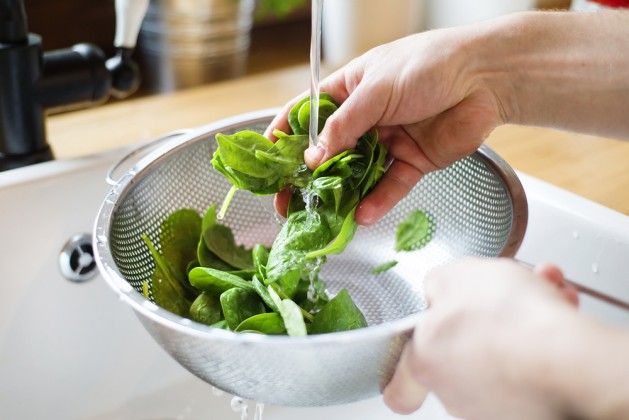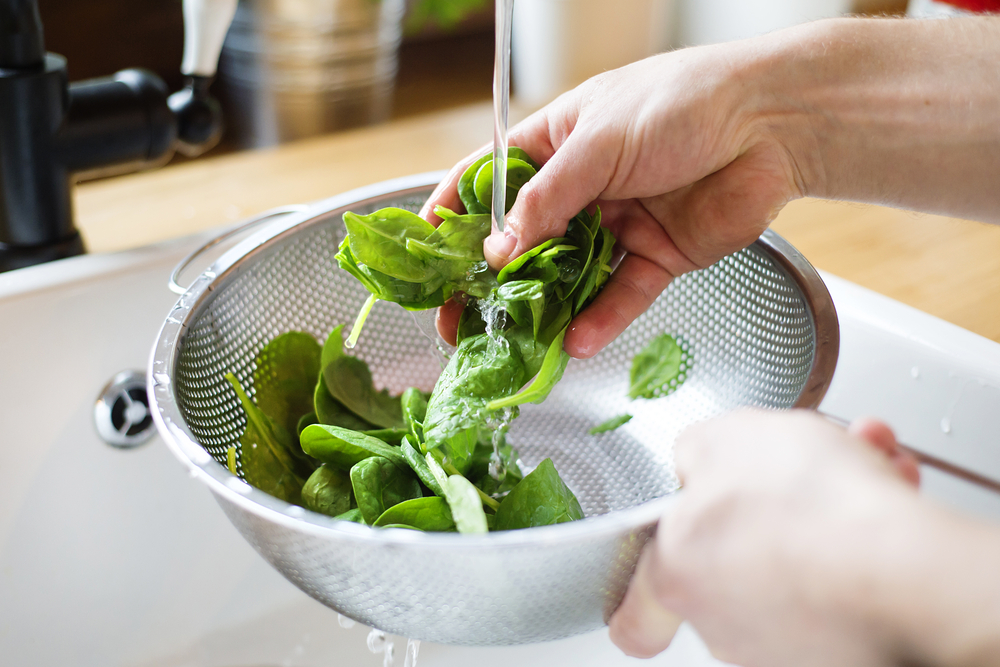
The convenience of pre-washed produce may not be worth the overall costs according to some folks. Bill Marler, an attorney for food-related illness lawsuits recently interviewed by Good magazine, insists it is one of the main grocery store foods he avoids at all times. Right up there with under-cooked meat and raw seafood, Marler considers pre-washed produce to pose a significant risk for illness since they are often handled by numerous hands, meaning their exposure to bacteria is multiplied an unknown number of times. In fact, anything “pre-washed” should draw a red flag according to Marler, since this is usually the case with all such products. Consumer Reports would likely agree with Marler’s assessment since their 2010 examination of 208 pre-washed salad mixes found “bacteria that are common indicators of poor sanitation and fecal contamination—in some cases, at rather high levels.”
Nutritional differences
That’s not the only reason people should reconsider their addiction to pre-washed produce, however. Tree Hugger’s Melissa Breyer recently dove into the issue finding several other problems with the handy trend. For example, one author pointed out the nutritional inferiority of buying bagged. Jo Robinson, author of Eating on the Wild Side: The Missing Link to Optimal Health, encourages buying fresh greens directly from the store and cleaning them yourself at home, then tearing them into bite-sized pieces prior to refrigeration, which she explains will “increase the antioxidant activity…fourfold.”
Water waste and chemicals
Water waste is another problem of the mixes, according to Bard College’s scientist at the Center for Environmental Policy, Gidon Eshel. Pre-washed greens are usually triple-washed using an enormous amount of water, which doesn’t even necessarily guarantee a clean product. One recent study from the University of California, Riverside found that “because of the nooks and crannies in triple-washed baby spinach leaves, upwards of 90% of adhered bacteria were observed to remain attached to and survive on the leaf surface. As a result, they say, the leaves travel through the processing facility after being rinsed and the bacteria may continue to live, grow, spread, and contaminate other leaves and surfaces within the site.”The fact that the greens washed during pre-packaging are often rinsed with a solution containing “a greater concentration (of chlorine) than the local swimming pool” according to The Independent, makes them even less appetizing still. In addition, a processing facility would use a substantial amount of electricity on top of the massive amounts of water, giving it a triple negative impact on the environment.
Top it all off with the story of Dave the frog, and you’ll surely grab for the unpackaged greens next time you shop. Liya Ma of South Pasadena opened her bag of pre-washed organic salad mix from Costco to prepare dinner only to find a live frog hopping out to say hello. Amazingly amicable, Ms. Ma decided to simply ask for a refund for the salad bag and keep the frog—which she later named Dave. Others have also found living frogs in their organic green mixes, although experts aren’t sure exactly why. One reason may have to do with the lack of pesticides on the organics which would normally kill frogs or other wildlife that hopped into the non-organic mixes. Either way, if a frog, living or dead, or any of these other unappealing surprises aren’t on your list for dinner, you may want to rinse and tear up your own lettuce from now on.



